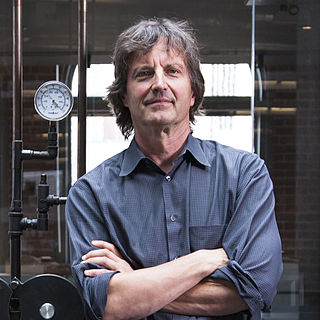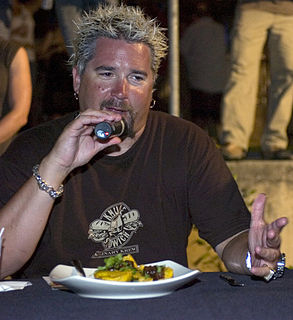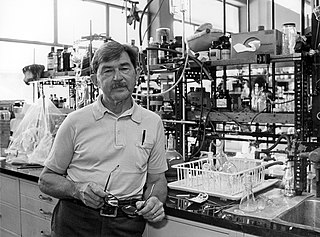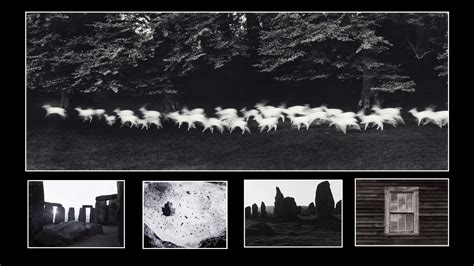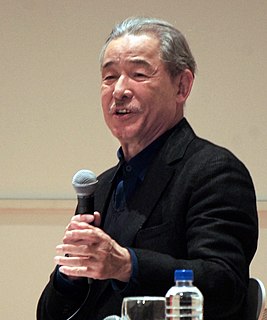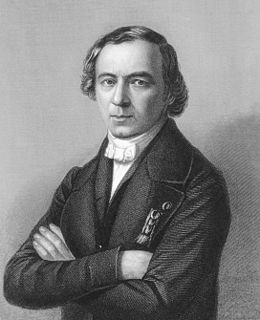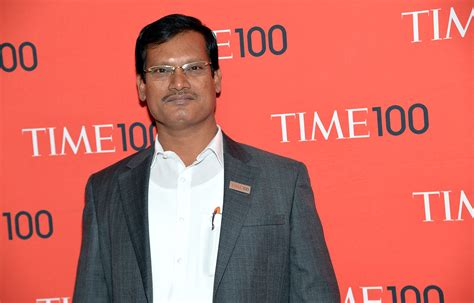Top 985 Materials Quotes & Sayings - Page 16
Explore popular Materials quotes.
Last updated on November 26, 2024.
I will build a car for the great multitude. It will be large enough for the family, but small enough for the individual to run and care for. It will be constructed of the best materials, by the best men to be hired, after the simplest designs that modern engineering can devise. But it will be so low in price that no man making a good salary will be unable to own one - and enjoy with his family the blessing of hours of pleasure in God's great open spaces.
Economy denotes the the proper management of materials and of site, as well as a thrifty balancing of cost and common sense in the construction of works. ...the architect does not demand things which cannot be found or made ready without great expense. For example: it is not everywhere that there is plenty of pitsand, rubble, fir, clear fir, and marble... Where there is no pitsand, we must use the kinds washed up by rivers or by the sea... and other problems we must solve in similar ways.
Dimension stone, flint, rubble, burnt or unburnt brick, use them as you find them. For it is not every neighborhood or particular locality that can have a wall built of burnt brick like that at Babylon, where there was plenty of asphalt to take the place of lime and sand, and yet possibly each may be provided with materials of equal usefulness so that out of them a faultless wall may be built to last forever.
Nuclear terrorism is still often treated as science fiction. I wish it were. But unfortunately we live in a world of excess hazardous materials and abundant technological know-how, in which some terrorists clearly state their intention to inflict catastrophic casualties. Were such an attack to occur, it would not only cause widespread death and destruction, but would stagger the world economy... [creating] a second death toll throughout the developing world.
The social dynamics of human history, even more than that of biological evolution, illustrate the fundamental principle of ecological evolution - that everything depends on everything else. The nine elements that we have described in societal evolution of the three families of phenotypes - the phyla of things, organizations and people, the genetic bases in knowledge operating through energy and materials to produce phenotypes, and the three bonding relations of threat, integration and exchange - all interact on each other.
Let us not look east and west for materials of conversation, but rest in presence and unity. A just feeling will fast enough supply fuel for discourse, if speaking be more grateful than silence. When people come to see us, we foolishly prattle, lest we be inhospitable. But things said for conversation are chalk eggs. Don't say things. What you are stands over you the while, and thunders so that I cannot hear what you say to the contrary.
Set in the remote and harsh high desert landscape of Idaho, Outpost is an artist live/work studio and sculpture garden for making and displaying art. An important aspect of the complex is the protected paradise garden, which is separated from the wild landscape by thick masonry walls. The materials used in the structure, including concrete block, car-decking, and plywood, require little to no maintenance, and are capable of withstanding the extreme weather that characterize the desert’s four seasons.
I've loosened up over the years about materials. I started off working for Matthew Barney, and that's what his mentality is. Even while we were making pieces, like a mold, the mold would make sense conceptually with the piece. That's how deep his symbology goes. I've loosened up over the years because I very much had that mentality.
Into this wild Abyss/ The womb of Nature, and perhaps her grave--/ Of neither sea, nor shore, nor air, nor fire,/ But all these in their pregnant causes mixed/ Confusedly, and which thus must ever fight,/ Unless the Almighty Maker them ordain/ His dark materials to create more worlds,--/ Into this wild Abyss the wary Fiend/ Stood on the brink of Hell and looked a while,/ Pondering his voyage; for no narrow frith/ He had to cross.
You see a lot of interesting visual irony on movie sets all the time, you know duality, set illusions, the reality, all that stuff. You play with interesting materials that you couldn't afford to otherwise. You meet interesting people that you work with, have special machinists or mold makers and make-up people, and people who make prosthetic appliances for actress' faces. It's really interesting kind of witch's brew of people in that business, aside from the sleeze bags you hear about on the financial end.
Pope has elegantly said a perfect woman's but a softer man. And if we take in the consideration, that there can be but one rule of moral excellence for beings made of the same materials, organized after the same manner, and subjected to similar laws of Nature, we must either agree with Mr. Pope, or we must reverse the proposition, and say, that a perfect man is a woman formed after a coarser mold.
At this season of the year we draw close to Good Friday. All the eyes of the world will turn back to "a green hill far away, without a city wall," where the founder of Christianity was crucified by those forces of selfishness, greed, and lust for gain that are still at work in the world. It seems to me that unless we do something in Canada about the question of the export of war materials there will be another crucifixion - the crucifixion of a generation of young men, crucified upon a cross of nickel.
For many years there have been treatments available which are successful and usually NOT harmful for diseases, such as AIDS, cancer, cystic fibrosis, diabetes, organ regeneration and other diseases. One by one these treatments and their creators or proponents have been targeted by the FDA, which I call the "office of orthodoxy enforcement," illegally using just powers derived from the consent of governed. These forms of tyranny are always accompanied by multi agency intrusions or harassment, confiscation of private medical files, censorship of written materials and threats or prosecution.
Happiness is much more equally divided than some of us imagine. One man shall possess most of the materials, but little of the thing; another may possess much of the thing, but very few of the material. In this particular view of it, happiness had been beautifully compared to the man in the desert--he that gathered much had nothing over, and he that gathered little had no lack.
It is one of the most fatal illusions that, by substituting negotiations between states or organized groups for competition for markets or for raw materials, international friction would be reduced. This would merely put a contest of force in the place of what can only metaphorically be called the "struggle" of competition and would transfer to powerful and armed states, subject to no superior law, the rivalries which between individuals had to be decided without recourse to force.
A man, and a cat, and a dog, are all animals. These particular examples, as man, or dog, or cat, are parts of a bigger and more general concept, animal. The man, and the cat, and the dog, and the plant, and the tree, all come under the still more general concept, life. Again, all these, all beings and all materials, come under the one concept of existence, for we all are in it.
Movement, change, light, growth and decay are the lifeblood of nature, the energies that I I try to tap through my work. I need the shock of touch, the resistance of place, materials and weather, the earth as my source. Nature is in a state of change and that change is the key to understanding. I want my art to be sensitive and alert to changes in material, season and weather. Each work grows, stays, decays. Process and decay are implicit. Transience in my work reflects what I find in nature.
We must bear in mind that imperialism is a world system, the last stage of capitalism-and it must be defeated in a world confrontation. The strategic end of this struggle should be the destruction of imperialism. Our share, the responsibility of the exploited and underdeveloped of the world, is to eliminate the foundations of imperialism: our oppressed nations, from where they extract capital, raw materials, technicians, and cheap labor, and to which they export new capital-instruments of domination-arms and all kinds of articles, thus submerging us in an absolute dependence.
[Coleridge] selected an instance of what was called the sublime, in DARWIN, who imagined the creation of the universe to have taken place in a moment, by the explosion of a mass of matter in the womb, or centre of space. In one and the same instant of time, suns and planets shot into systems in every direction, and filled and spangled the illimitable void! He asserted this to be an intolerable degradation -referring, as it were, all the beauty and harmony of nature to something like the bursting of a barrel of gunpowder! that spit its combustible materials into a pock-freckled creation!
I do my best writing between 10 p.m. and 5 a.m.. Almost every friend I have who is a consistently productive writer, does their best writing between 10 p.m. and 8 a.m. My quota is two crappy pages per day. I keep it really low so I'm not so intimidated that I never get started. I will do the gathering of interviews and research throughout the day. I'll get all my notes and materials together and then I'll do the synthesis between 10 p.m. to bed, which is usually 4 or 5 a.m.
Why did I not die? More miserable than man ever was before, why did I not sink into forgetfulness and rest? Death snatches away many blooming children, the only hopes of their doting parents: how many brides and youthful lovers have been one day in the bloom of health and hope, and the next a prey for worms and the decay of the tomb! Of what materials was I made, that I could thus resist so many shocks, which, like the turning of the wheel, continually renewed the torture? But I was doomed to live.
It has always been my belief that the true artist, like the true scientist, is a researcher using materials and techniques to dig into the truth and meaning of the world in which he himself lives; and what he creates, or better perhaps, brings back, are the objective results of his explorations. The measure of his talent--of his genius, if you will--is the richness he finds in such a life's voyage of discovery and the effectiveness with which he is able to embody it through his chosen medium.
In our quest to quickly make three-dimensional objects, we can miss out on the experience of making something that helps give us our first understandings of form and material, of the way a material behaves--'I press too hard here, and it breaks here' and so on. Some of the digital rendering tools are impressive, but it's important that people still really try and figure out a way of gaining direct experience with the materials.
Herein is the explanation of the analogies, which exist in all the arts. They are the re-appearance of one mind, working in many materials to many temporary ends. Raphael paints wisdom, Handel sings it, Phidias carves it, Shakspeare writes it, Wren builds it, Columbus sails it, Luther preaches it, Washington arms it, Watt mechanizes it. Painting was called "silent poetry," and poetry "speaking painting." The laws of each art are convertible into the laws of every other.
He who lets the world, or his own portion of it, choose his plan of life for him, has no need of any other faculty than the ape-like one of imitation. He who chooses his plan for himself, employs all his faculties. He must use observation to see, reasoning and judgment to foresee, activity to gather materials for decision, discrimination to decide, and when he has decided, firmness and self-control to hold to his deliberate decision.
I see "demand creation" as a 20th-century construct that's bound up with advertising. It's an outmoded view of marketing that says, "First, we build a product or service, then we advertise it into people's lives." Embedded this view is the belief that companies control brands. This is a myth. My message all along has been that brands are actually created by customers, not companies. Companies only provide the raw materials - the products, messaging, behaviors - that people use these to create brands.
Paper money is like dram-drinking, it relieves for a moment by deceitful sensation, but gradually diminishes the natural heat, and leaves the body worse than it found it. Were not this the case, and could money be made of paper at pleasure, every sovereign in Europe would be as rich as he pleased. But the truth is, that it is a bubble and the attempt vanity. Nature has provided the proper materials for money: gold and silver, and any attempt of ours to rival her is ridiculous.
An acoustic ecologist is a listener who is aware that sound is information. It's information because it's created by events, events produce sound, and that sound has all kinds of data, if you will, that conveys what event occurred, what the materials were, whether it was sudden, slow, loud, in what direction. And because it is information, we can think of it as a message. The acoustic ecologist studies information systems that are both intentional and sometimes wild.
As South Korea shows, active participation in international trade does not require free trade. Indeed, had South Korea pursued free trade and not promoted infant industries, it would not have become a major trading nation. It would still be exporting raw materials (e.g., tungsten ore, fish, seaweed) or low-technology, low-price products (e.g., textiles, garments, wigs made with human hair) that used to be its main export items in the 1960s.
Instead of saying that man is the creature of circumstance, it would be nearer the mark to say that man is the architect of circumstance. It is character which builds an existence out of circumstance. From the same materials one man builds palaces, another hovels; one warehouses, another villas; bricks and mortar are mortar and bricks until the architect can make them something else.
Writing a book I have found to be like building a house. A man forms a plan, and collects materials. He thinks he has enough to raise a large and stately edifice; but after he has arranged, compacted and polished, his work turns out to be a very small performance. The authour however like the builder, knows how much labour his work has cost him; and therefore estimates it at a higher rate than other people think it deserves
Some people say that the West has a cruel history. These people also may see the achievements of Western countries - in terms of the economy, education, health, and social achievements - as a result of exploitation of poorer countries, including Arab countries. Western nations get rich by using resources such as Arab oil. Meanwhile, the countries supplying them raw materials remain poor. Due to such injustices, jealousies are created.
We don’t go further than what Marx called the exchange value of the actual object - we don’t think about the relations that that object embodies - and were important to the production of that object whether it’s our food or our clothes or our I-pads or all the materials we use to acquire an education at an institution like this. That would really be revolutionary to develop a habit of imagining the human relations and non human relations behind all of the objects that constitute our environment.
Undeveloped though the science [of chemistry] is, it already has great power to bring benefits. Those accruing to physical welfare are readily recognized, as in providing cures, improving the materials needed for everyday living, moving to ameliorate the harm which mankind by its sheer numbers does to the environment, to say nothing of that which even today attends industrial development. And as we continue to improve our understanding of the basic science on which applications increasingly depend, material benefits of this and other kinds are secured for the future.
Perhaps the heroic element in our natures is exhibited to the best advantage, not in going from success to success, and so on through a series of triumphs, but in gathering, on the very field of defeat itself, the materials for renewed efforts, and in proceeding, with no abatement of heart or energy, to form fresh designs upon the very ruins and ashes of blasted hopes. Yes, it is this indomitable persistence in a purpose, continued alike through defeat and success, that makes, more than aught else, the hero.
If our entertainment culture seems debased and unsatisfying, the hope is that our children will create something of greater worth.But it is as if we expect them to create out of nothing, like God, for the encouragement of creativity is in the popular mind, opposed to instruction. There is little sense that creativity must grow out of tradition, even when it is critical of that tradition, and children are scarcely being given the materials on which their creativity could work
I was very pleased when PRS presented me with my SE Angelus acoustic, a beautiful guitar of stunning quality. It was in response to the challenge of building a guitar that shared the integrity and attention to detail that the Alex Lifeson Private Stock Angelus possesses in a package more broadly accessible. The SE Alex Lifeson Thinline is that model. Carefully selected materials, expert craftsmanship and a smart approach to concept resulted in a guitar that is beautiful to look at and rewarding to play.
Emulation has been termed a spur to virtue, and assumes to be a spur of gold. But it is a spur composed of baser materials, and if tried in the furnace will be found to want that fixedness which is the characteristic of gold. He that pursues virtue, only to surpass others, is not far from wishing others less forward than himself; and he that rejoices too much at his own perfections will be too little grieved at the defects of other men.
What are the top 20 universities in the world that do good materials research that might create carbon fibers to do jet stream kites or new magnets that will allow [energy] generation to be done up there and you just bring the electricity down. You either have to bring down rotational energy, which is hard, or you have to have the generator up there and bring down the electricity. Well, putting the generator up there is hard to do because it's too heavy.
To achieve true sustainability, we must reduce our "garbage index" - that which we permanently throw away into the environment that will not be naturally recycled for reuse - to near zero. Productive activities must be organized as closed systems. Minerals and other nonbiodegradable resources, once taken from the ground, must become a part of society's permanent capital stock and be recycled in perpetuity. Organic materials may be disposed into the natural ecosystems, but only in ways that assure that they are absorbed back into the natural production system.
There are novels that end well, but in between there are human beings acting like human beings. And human beings are not perfect. All of the motives a human being may have, which are mixed, that's the novelists' materials. That's where they have to go. And a lot of that just isn't pretty. We like to think of ourselves as really, really good people. But look in the mirror. Really look. Look at your own mixed motives. And then multiply that.
The only way a work of art can become great is for one to acknowledge that it doesn't belong to anybody. The greatness is in constantly giving back, coming to an acknowledgment of the source. Look back to the source of any individual, any process, any set of materials. If the individual personality can relinquish its insistence on concepts like this is mine, I did it, this is original, nobody else has done it, it goes straight for greatness or the essential spirit.
The Germans, in the age of Tacitus, were unacquainted with the use of letters; and the use of letters is the principal circumstance that distinguishes a civilised people from a herd of savages incapable of knowledge or reflection. Without that artificial help, the human memory soon dissipates or corrupts the ideas intrusted to her charge; and the nobler faculties of the mind, no longer supplied with models or with materials, gradually forget their powers; the judgment becomes feeble and lethargic, the imagination languid or irregular.
What visual information does is it creates priorities. You cannot know with certainty what lies behind something else. There are very few transparent materials in the natural world or the built environment. And so we deal with things superficially, and we deal with what's in front of us, not what's behind our head that we can't see, or to the left or the right. Visualists are often linear and timeline-oriented, whereas the natural condition and the natural way of problem-solving throughout evolution is to be multitasking.
I have always been interested in conducting research that yielded new methods by which to make cloth, and in developing new materials that combine craftsmanship and new technology. But the most important thing for me is to show that, ultimately, technology is not the most important tool; it is our brains, our thoughts, our hands, our bodies, which express the most essential things.
I chose Congo in order to become close to a place that we had turned away from. It isn't present in our imaginations, in the stories we tell each other. Yet it's relevant to our lives and to our worlds, in a practical way. Congo supplies raw materials for the things that we use on a daily basis. We are intimately linked to Congo, economically. We're linked to it through human events that are occurring there, that affect all of us, and yet you don't find narratives of Congo present in our lives.
Different moralities must share some general features if they are to perform their functions of coordinating beings having particular kinds of motivations. Morality is a cultural construction in something like the way bridges are. There would be no bridges unless human beings used them to move across bodies of waters or depressions in the earth, but a good bridge cannot be designed according to whim, but rather according to what would adequately fulfill their function and the nature of the materials that are available for their construction.
Peter Drucker has pointed out that it is a manager's job to "do things right." It is an executive's job to make sure "the right things" get done. Even the most rigorous eco-efficient business paradigm does not challenge basic practices and methods: a shoe, building, factory, car, or shampoo can remain fundamentally ill-designed even as the materials and processes involved in its manufacture become more "efficient."
The chemical compounds are comparable to a system of planets in that the atoms are held together by chemical affinity. They may be more or less numerous, simple or complex in composition, and in the constitution of the materials, they play the same role as Mars and Venus do in our planetary system, or the compound members such as our earth with its moon, or Jupiter with its satellites... If in such a system a particle is replaced by one of different character, the equilibrium can persist, and then the new compound will exhibit properties similar to those shown by the original substance.
CHOW^TM contained spun, plaited, and woven protein molecules, capped and coded, carefully designed to be ignored by even the most ravenous digestive tract enzymes; no-cal sweeteners; mineral oils replacing vegetable oils; fibrous materials, colorings, and flavorings. The end result was a foodstuff almost indistinguishable from any other except for two things. Firstly, the price, which was slightly higher, and secondly, the nutritional content, which was roughly equivalent to that of a Sony Walkman.
There is a form of poetic and esthetic and moral genius necessary to make philosophical issues truly incandesce for students, and even though I indeed had some world-class professors myself when I went through the curriculum, I rarely saw such gnosic or concretist/poetic passion among them. I am not speaking of broad histrionics or melodramatic delivery, but rather a moral investment of concern, of loving delight and pathos in exposing one's consciousness to the full horrific and magnificent implications of the materials.
The idea came from my wife, since in our village, women cannot afford to buy sanitary pads. When I asked my wife, she told me we would have to cut down half of our milk budget to buy sanitary pads. Moreover, while raw materials for sanitary pads cost 10 paise, the end product was sold for 40 times that price. So, I decided to create it on my own.
So here I stand before you preaching organic architecture: declaring organic architecture to be the modern ideal and the teaching so much needed if we are to see the whole of life, and to now serve the whole of life, holding no traditions essential to the great TRADITION. Nor cherishing any preconceived form fixing upon us either past, present or future, but-instead-exalting the simple laws of common sense-or of super-sense if you prefer-determining form by way of the nature of materials.
In mathematics ... we find two tendencies present. On the one hand, the tendency towards abstraction seeks to crystallise the logical relations inherent in the maze of materials ... being studied, and to correlate the material in a systematic and orderly manner. On the other hand, the tendency towards intuitive understanding fosters a more immediate grasp of the objects one studies, a live rapport with them, so to speak, which stresses the concrete meaning of their relations.
The world is God's workshop; the raw materials are His; the ideals and patterns are His; our hands are "the members of Christ," our reward His recognition. Blacksmith or banker, draughtsman or doctor, painter or preacher, servant or statesman, must work as unto the Lord, not merely making a living, but devoting a life. This makes life sacramental, turning its water into wine. This is twice blessed, blessing both the worker and the work.
I have a fairly unwieldy set of concerns that go into determining what I do in the paintings, such as the history of the decorative, patterns of cultural migration, Islamic art and design, Byzantine architecture, the annals of natural history, as well as contemporary painting. All of these things are filtered through my own sense of cultural urgency. How I proceed with the work has to do with how I respond to this instinctively chosen mass of materials. I'm weighing many things and making many decisions before I even get started on a painting.
The gist of the matter is this: Every impression that comes in from without, be it a sentence which we hear, an object of vision, or an effluvium which assails our nose, no sooner enters our consciousness than it is drafted off in some determinate direction or other, making connection with the other materials already there, and finally producing what we call our reaction. The particular connections it strikes into are determined by our past experiences and the 'associations' of the present sort of impression with them.





